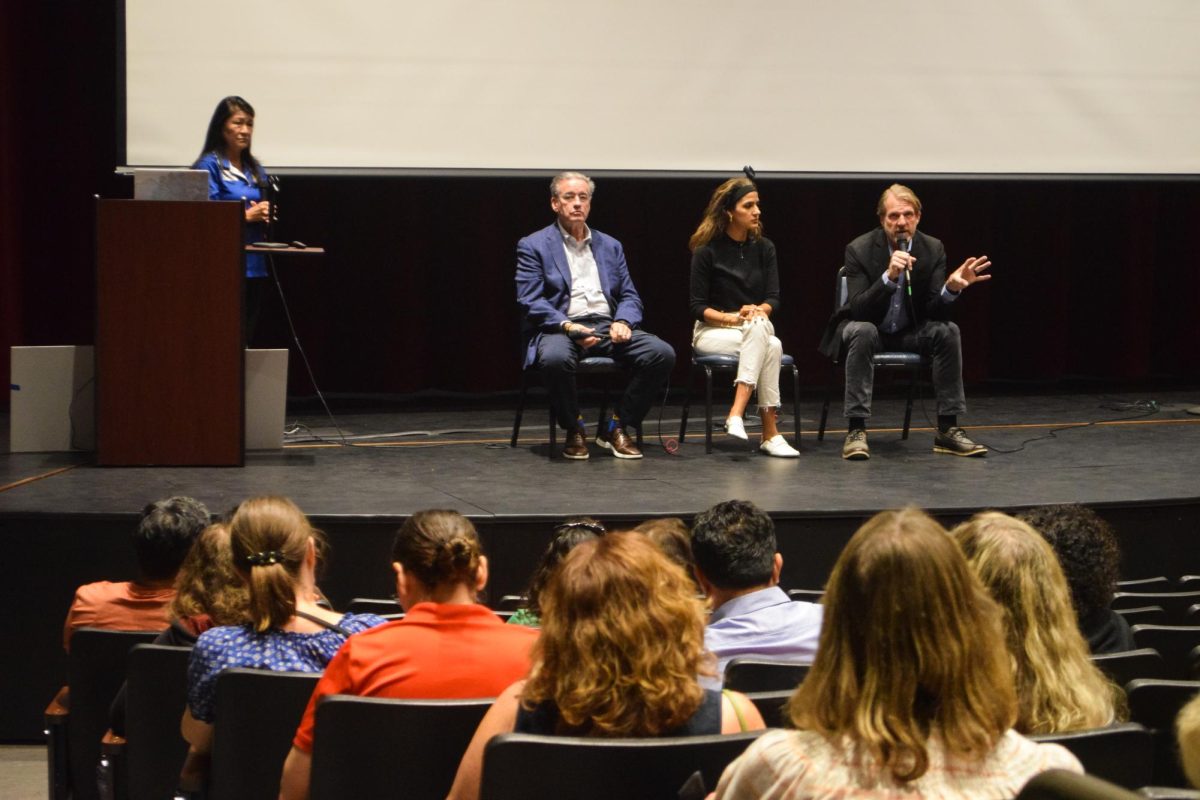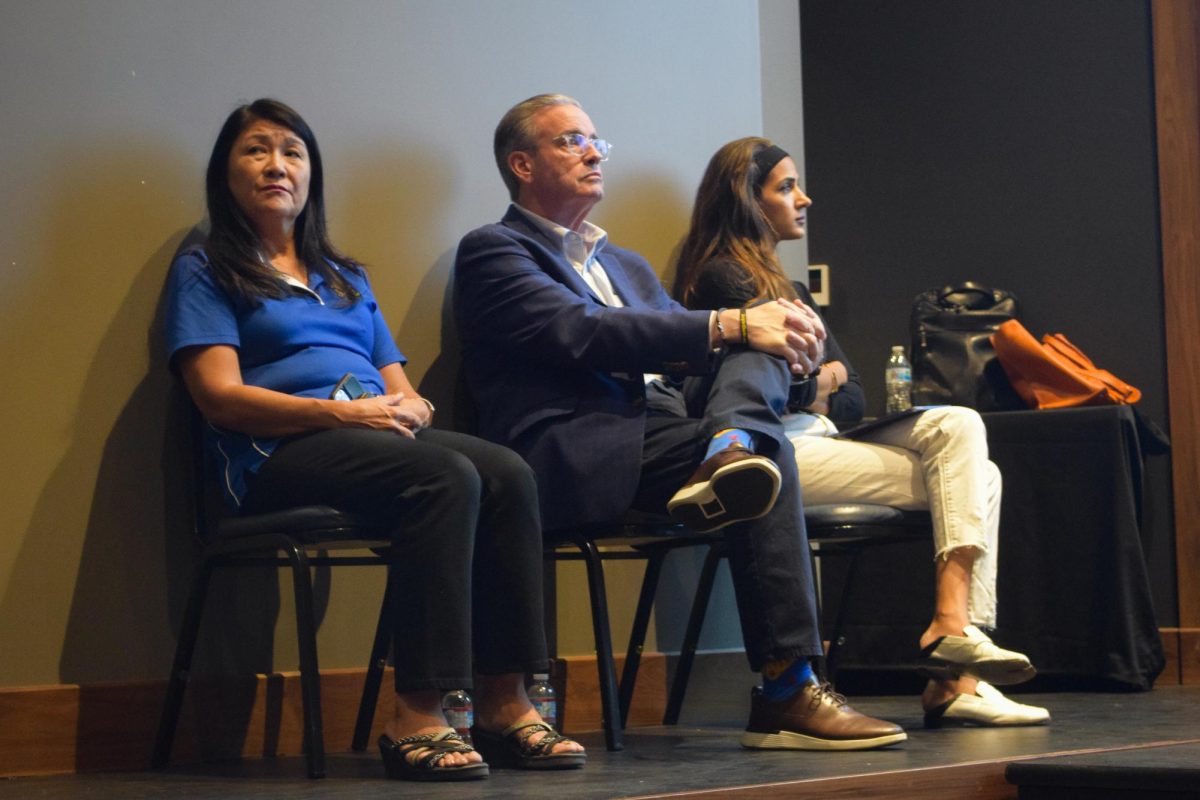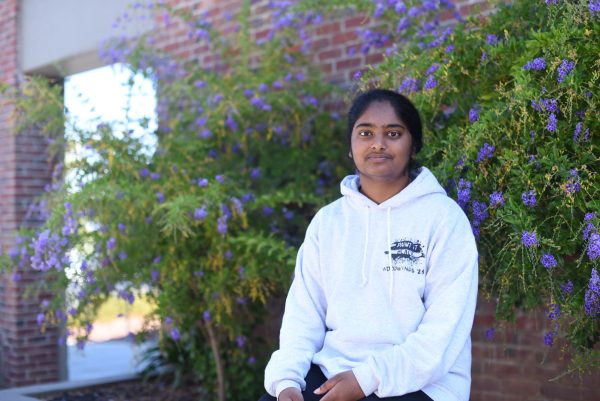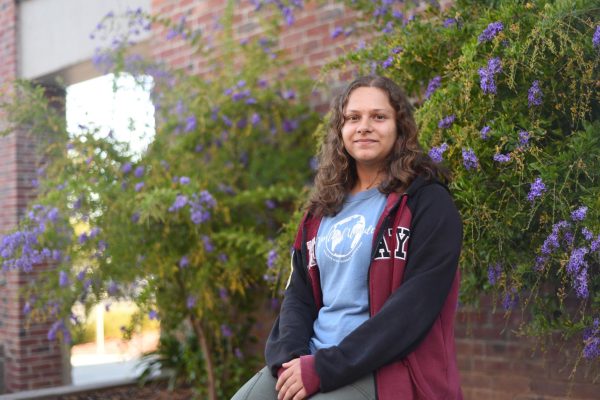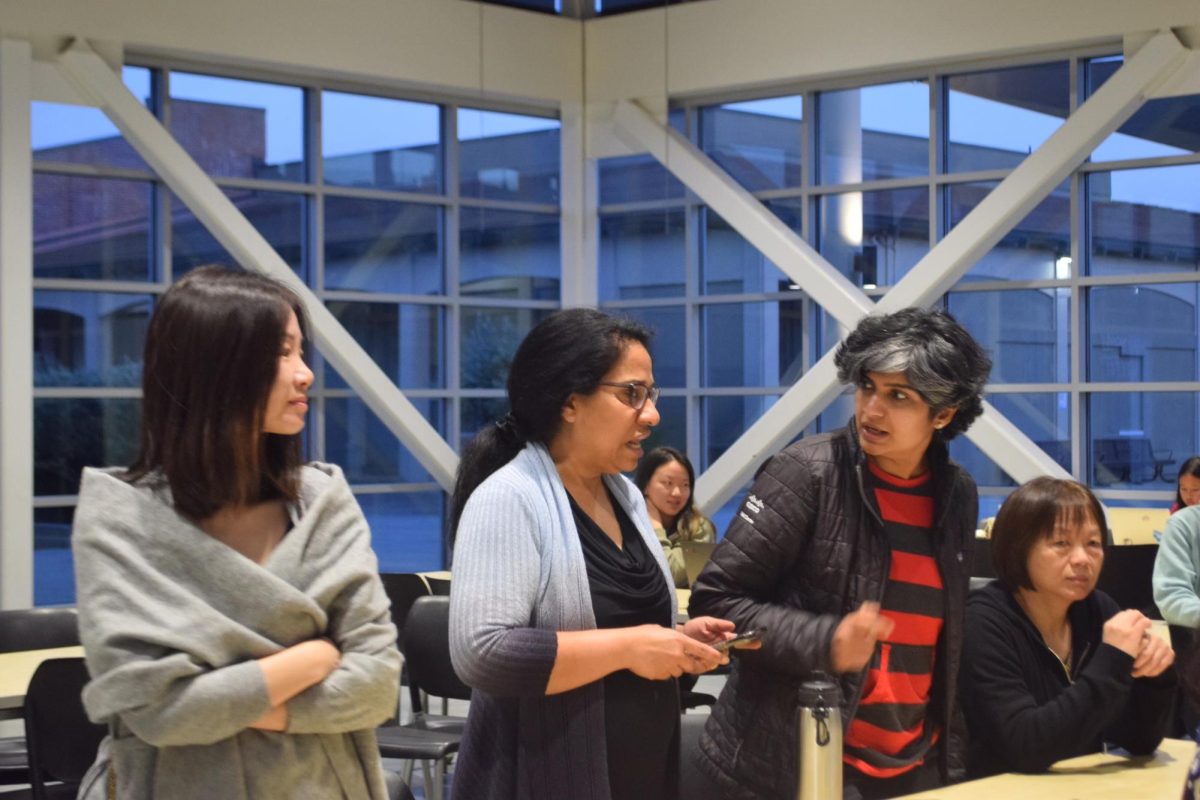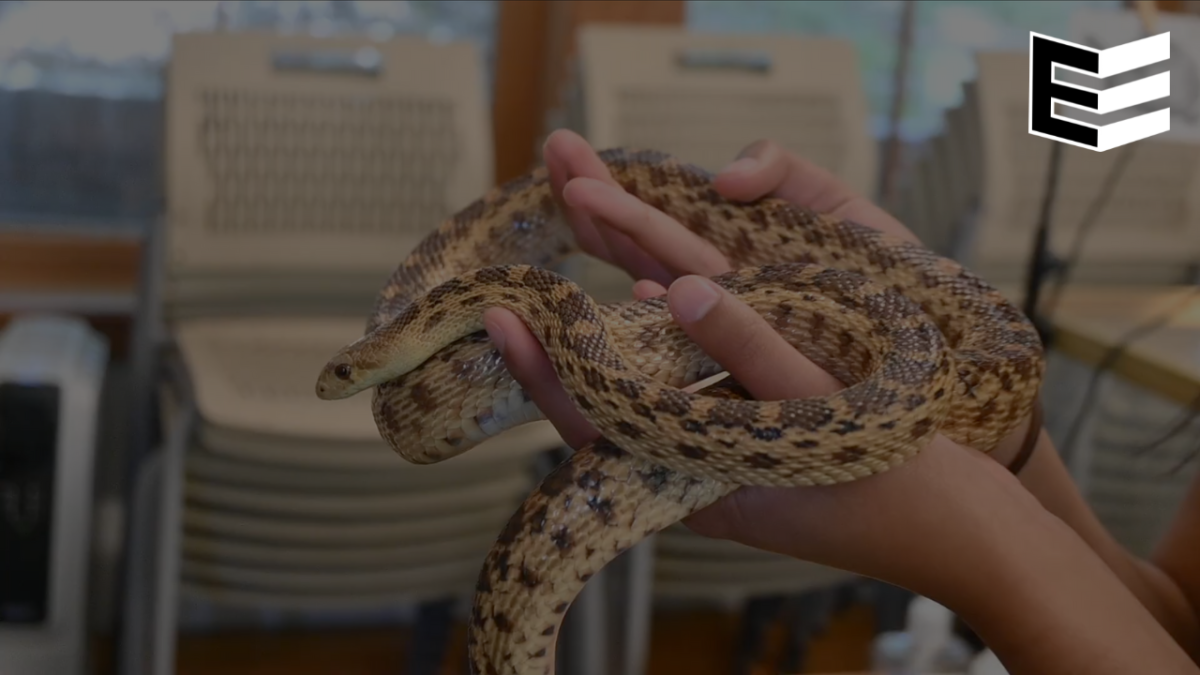The Fentanyl Prevention Presentation, organized by the Cupertino Rotary Club, took place on Oct. 18 from 7 to 8:30 p.m. in Fremont High School’s Shannon Theater. The free event was open to staff, students and parents, and featured the following speakers: Ed Ternan, who lost his son Charlie to fentanyl poisoning; Rhana Hashemi, Ph.D. candidate at Stanford and founder of Know Drugs; and Rob Walker, an MVHS alum, who also lost his son Colin to fentanyl poisoning.
The presentation started with Rob Walker recounting his experience two years ago when his 17-year-old son died as a result of fentanyl poisoning. Walker expressed his grief and frustration at the circumstances surrounding his son’s death, adding that “he didn’t ask for fentanyl.”
Following Walker’s account, Ed Ternan, founder and head of the non-profit organization Song for Charlie, emphasized the importance of increasing knowledge about fentanyl in fake pills, instead of just spreading awareness. He outlined the flaws of “just say no” drug education and introduced Song for Charlie’s new program, The New Drug Talk, created in collaboration with Know Drugs, the California Department of Healthcare Services and other sponsors as an improvement over current drug education made for the purpose of increasing knowledge. The Cupertino Rotary Club ended the event with a $5000 donation to Song for Charlie.
Ternan is excited about the new online resource presented by The New Drug Talk. He hopes people in the community use the website to educate themselves about how to keep themselves and their loved ones safe and communicate transparently about substances.
“The goal is to make it easier for families to talk about mental health issues, self-medication and the drug landscape as it exists today, which is really different than it was five or eight years ago. It [has] changed very quickly,” Ternan said. “It could be a two-way dialogue where parents can learn from the kids and what they’re experiencing just as much as the parents are teaching the kids. And we think, in that way, by normalizing this conversation, that we can help young people avoid the risks that they’re up against now, which are way more than they were when I was a kid.”




